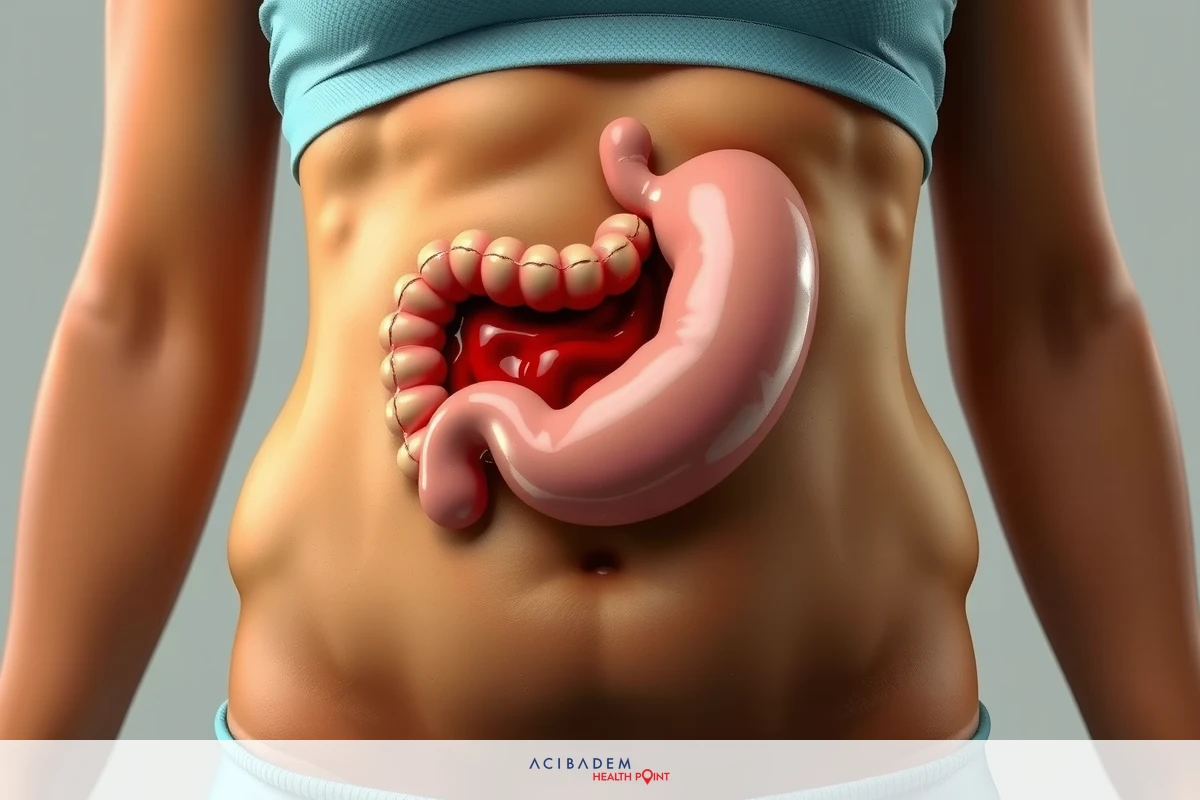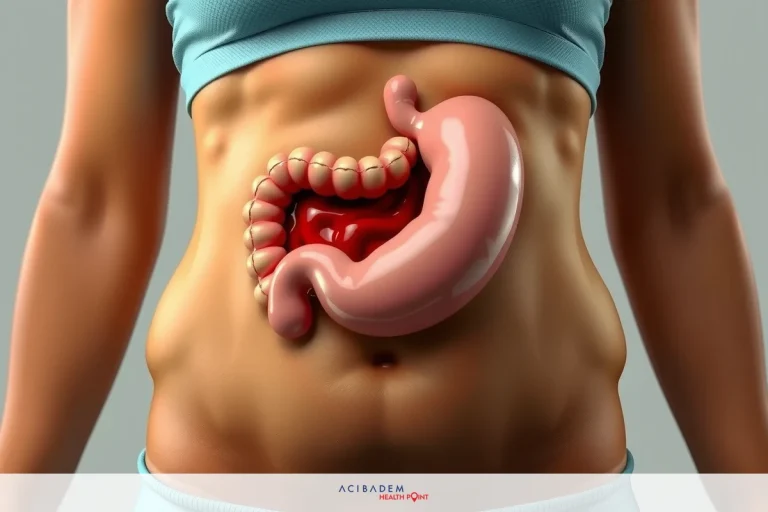What organs are affected by gastric bypass surgery
What organs are affected by gastric bypass surgery Gastric bypass surgery is a proven method for achieving substantial weight loss in individuals with obesity. This surgical procedure alters the digestive system, particularly impacting the stomach and intestines, to limit food intake and nutrient absorption. As such, it’s essential to understand how these changes may affect your body.
The effects of this surgery reach beyond mere weight loss. It can lead to meaningful enhancements in health by alleviating obesity-related conditions such as diabetes, hypertension, sleep apnea, and various others. As with any major operation, it carries certain risks and potential side effects. This article aims to shed light on the specific organ impacts associated with gastric bypass surgery and its positive outcomes.
Positive outcomes of gastric bypass surgery
Gastric bypass surgery is a meaningful intervention that can result in a multitude of positive transformations within your body and overall well-being. One of the most immediate and noticeable effects of the surgery is significant weight loss. As the size of the stomach is decreased, it limits the amount of food intake, which contributes to a rapid and substantial reduction in body weight. This weight loss can have profound impacts on organ health, notably reducing strain on the heart and improving cardiovascular function.
Additionally, the surgery impacts metabolic processes and hormone production in the body. Gastric bypass surgery often leads to improvements in glucose control, making it an effective treatment option for people with type 2 diabetes. The changes in hormone production can also lead to reduced appetite and improved satiety, which can further facilitate weight loss and improve quality of life.

Lastly, gastric bypass surgery can result in significant improvements in obesity-related comorbidities. Many patients experience relief from conditions such as hypertension, sleep apnea, gastroesophageal reflux disease (GERD), and non-alcoholic fatty liver disease following the operation. These improvements not only enhance physical health but also contribute to improved mental wellbeing by alleviating the stress and anxiety often associated with chronic illnesses. Thus, while gastric bypass surgery does impact various organs due to its nature, many of these impacts are positive and contribute to a greater quality of life for patients.
Effects on the Stomach
Gastric bypass surgery, by its very nature, has a profound impact on the stomach. During the procedure, the surgeon creates a small pouch at the top of the stomach. This pouch, which becomes the new stomach, is significantly smaller than the original stomach. As such, it can hold only a limited amount of food. This change in size results in reduced food intake and helps facilitate weight loss.
The surgery also alters the way the stomach functions. In a normal digestive process, the stomach produces various enzymes and acids that help break down food and initiate digestion. However, with gastric bypass surgery, most of this part of the stomach is bypassed. Consequently, there’s a significant reduction in the digestion process that occurs in the stomach. This leads to less breakdown of food within the stomach and an altered absorption pattern in the intestines.
Furthermore, because of these changes in structure and function, patients who have undergone gastric bypass surgery often need to modify their eating habits significantly. They are typically advised to eat smaller meals more frequently throughout the day to ensure they’re getting enough nutrients while also preventing discomfort or complications like ‘dumping syndrome’, where undigested food moves too quickly from the stomach pouch into the small intestine causing nausea, vomiting, bloating, diarrhea, and dizziness. Overall, while these changes might seem challenging at first, with appropriate guidance and commitment to lifestyle modifications, many patients successfully adapt and enjoy improved health outcomes post-surgery.
Impact on the Intestines
The impact of gastric bypass surgery extends beyond the stomach to the intestines. During the procedure, the surgeon connects the newly created stomach pouch directly to the middle portion of the small intestine, bypassing a significant part of the digestive tract. This rearrangement results in fewer calories and nutrients being absorbed from the food consumed, contributing to weight loss.
However, this adjusted path of digestion also brings about changes in nutrient absorption. As a larger section of the small intestine is bypassed, there is less surface area for nutrients to be absorbed. This change can lead to deficiencies in certain vitamins and minerals if not properly managed. It’s important for individuals who have undergone gastric bypass surgery to follow a balanced diet and take recommended supplements to ensure they receive necessary nutrients.
Additionally, this alteration in the digestive pathway affects gut hormones responsible for hunger and satiety. After gastric bypass surgery, patients often report reduced appetite and feeling fuller sooner during meals, which can further facilitate weight loss. However, it’s important to note that while these changes are beneficial for achieving desired weight loss goals, they require significant lifestyle modifications and close medical supervision to avoid potential complications and ensure optimal health outcomes.
Frequently Asked Questions
How long does the recovery process take after gastric bypass surgery?
The recovery period following gastric bypass surgery can vary from person to person. Generally, patients can expect to spend a few days in the hospital after the procedure. It may take several weeks to fully recover and resume normal activities. Your healthcare team will provide detailed post-operative care instructions and monitor your progress throughout the recovery process.
What are the potential risks and complications associated with gastric bypass surgery?
As with any surgical procedure, there are risks involved with gastric bypass surgery. Complications may include infection, bleeding, blood clots, adverse reactions to anesthesia, or leaks in the gastrointestinal system. It is crucial to discuss these potential risks with your healthcare provider and follow their guidance before and after the surgery.
Will I be able to eat normally after gastric bypass surgery?
Gastric bypass surgery involves significant changes to your digestive system that will impact your eating habits. While you will be able to eat solid food after recovery, it is important to adopt a new approach to eating. Your healthcare team will provide dietary guidelines and recommend portion sizes that support weight loss and overall health. It's essential to follow these guidelines for successful outcomes.
Will I need to take supplements or vitamins after gastric bypass surgery?
Yes, after gastric bypass surgery, it is common for individuals to require supplements or vitamins due to reduced nutrient absorption. This helps prevent nutritional deficiencies and ensures your body receives adequate amounts of vitamins and minerals. Your healthcare provider will guide you on the specific supplements you need and monitor your nutrient levels through regular check-ups.
Can I become pregnant after undergoing gastric bypass surgery?
Yes, it is generally safe to become pregnant after gastric bypass surgery. However, it is recommended to wait at least 12-18 months post-surgery to allow your body to stabilize and reach a healthy weight. It's important to consult with your healthcare provider regarding pregnancy plans, as they can provide guidance on nutrition, prenatal care, and monitor any potential risks or complications.











